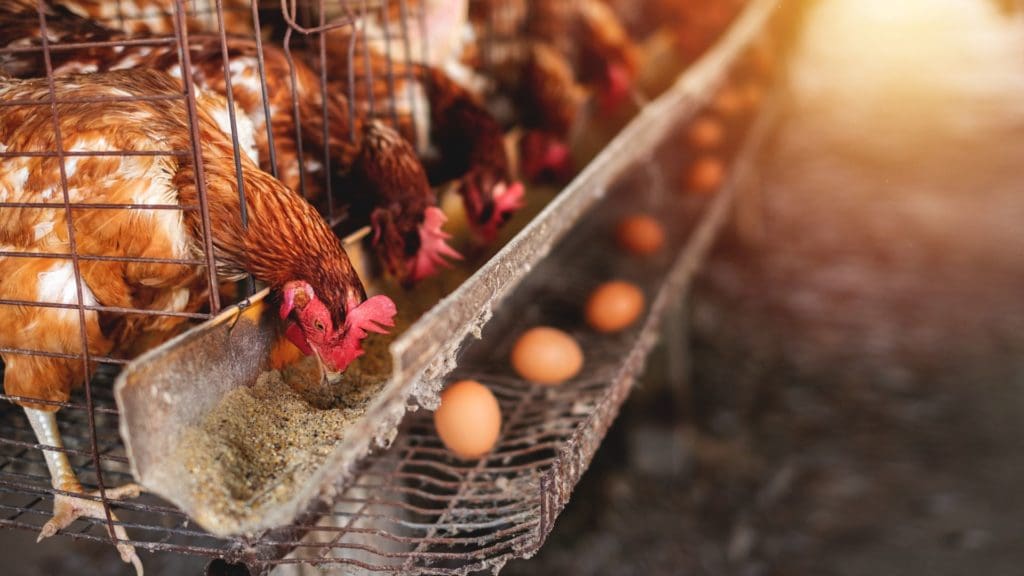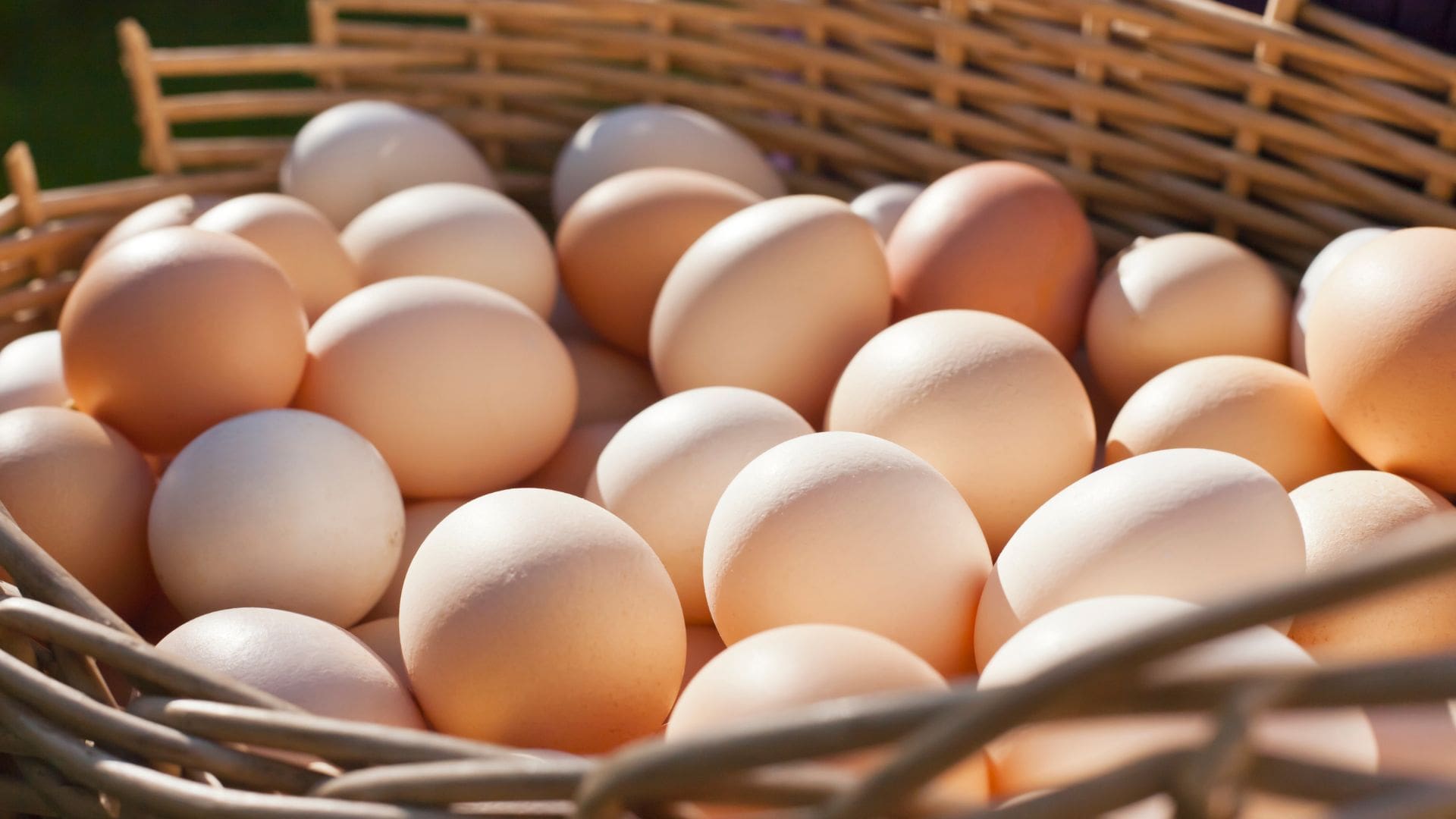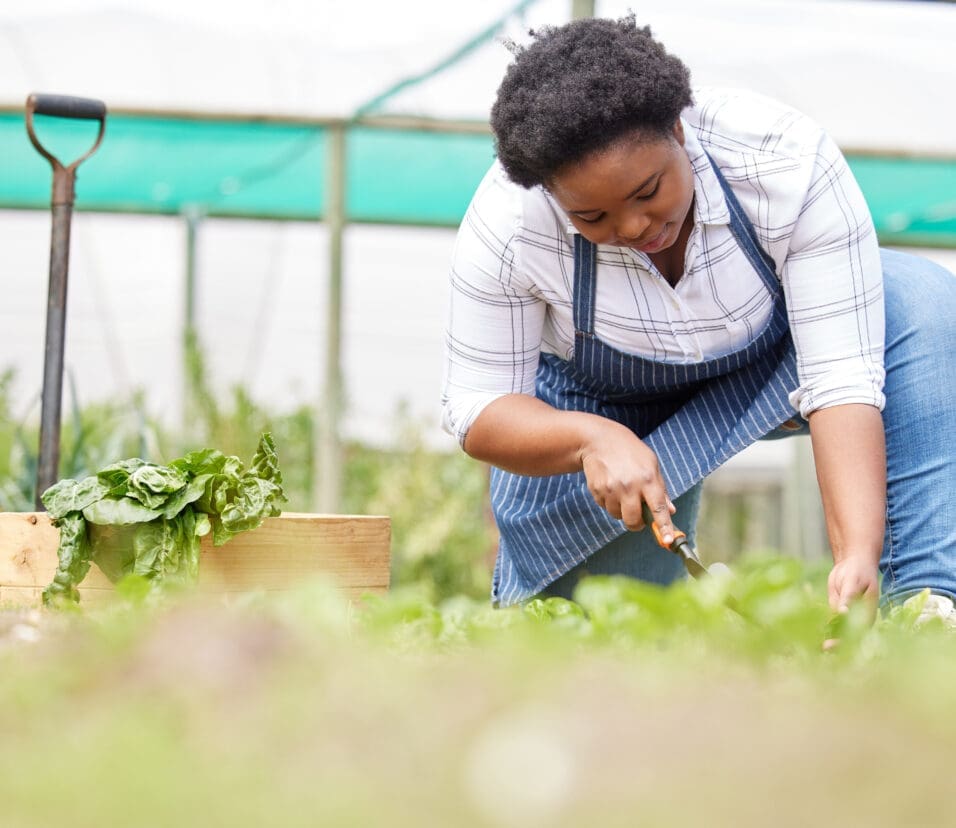The Business of Egg Farming with Mrs. Judy-Ann Bradshaw
The following article is based on an interview conducted with Mrs. Judy-Ann Bradshaw of Heritage C.E.B Farming in Barbados.
The Beginnings
Judy-Ann Bradshaw is a farmer in Barbados. She readily admits that she did not grow up on a farm, and all her training as an Egg Farmer came from hands-on training. She became involved in animal farming because her husband was involved, and she followed him in this career. Her husband Peter grew up on a farm and learned all about farming from his dad. In fact, the business is named after Judy-Ann’s father-in-law, as C.E.B are his initials.
C.E.B did not start out with layers for egg production, but it started out with broilers some 13 years ago. The business didn’t grow out of a pet project (as some egg businesses do), but as a means of subsidising their home income.

LAYER – Chickens that produce eggs for human consumption.
BROILER – Chickens that you grow to eat. The business started off small with only 60 chickens which they sold to friends and family. Word-of-mouth helped the business to grow bigger and bigger as friends told other friends, etc. They added the layer egg business about five years ago, to the already established broiler business. However, around 2018, they stopped doing the broilers because they realised that the chickens were not growing big enough. In 2020, the brand
C.E.B. was birthed, and when the pandemic came, they started selling to the supermarkets. Unlike many other businesses, the pandemic brought better for C.E.B.Before the pandemic, the business sold mostly to homeowners and restaurants. Judy-Ann realised that if they had not made that change, it would have affected the business very badly. This is because they are not the only people in Barbados doing egg farming at all, so the ‘mostly homeowners’ market would have diminished during the pandemic. However, because they started to include supermarkets, the pandemic brought increased sales.
The Life of a Chicken
The Broiler chicken takes six weeks to grow to maturity, at which point they can be processed and sold. However, the layers (which are purchased as chicks) take six months before they start laying. Farmers must therefore realise that they cannot count on layers as an immediate income source, as it will take months before the layers start laying eggs.
Life Expectancy: A layer typically lives for approximately two years. However, you will get about a year and a half of egg production, as they will only start to lay after the first six months of their existence. It is therefore necessary to keep refreshing the layer business by purchasing them approximately every 6 months.

Cage-Free vs Free-Range vs Pasture-Raised
Presently, there are no official bodies that govern the terms which describe the habitation of chickens. As a result of this, terms such as Cage-Free and Free-Range are loosely used. To understand these terms, you will need to learn about Battery Cages.
In many countries worldwide, battery cages are used to house chickens. These cages are made from wire and are approximately the same size as a filing cabinet drawer. Some commercial businesses place between 8 to 10 chicks in each cage. Inside the cages, the chickens are unable to move, and they eat, drink and lay eggs there.
The battery cage is lowered and placed on a slant. When the eggs are laid, they roll onto the automated belt, which is then sent to be cleaned. The entire process is automated. Judy-Ann believes that this practice is inhumane to animals, as they cannot move around, but she also acknowledged that this was the most economical and profitable way to keep chickens. In 1992, Switzerland became the first country to ban battery cages and make them illegal. Some other European countries and the United States are also trying to stop it. Therefore, the term Cage-Free came about, which serves to let customers know that the animals are not put into these small cages where they can’t move around.
Free-Range and cage-free work together to provide chickens with more space. Some people have pens that are built big enough for the chickens to move around in, giving them the opportunity to fly and perch on wood sticks. Therefore, any business with adequate sized pens to accommodate these activities, can be considered free-range.
At C.E.B Heritage the chickens are all Pasture-Raised. Judy-Ann explained that for the first six months, the layers are kept in cages as they mature. After this time, they are freed during the day to roam around on their two acres of land, while at night, they return to their respective pens (from birth). Judy-Ann said that sometimes all do not go back to their pens, but instead sleep in the trees.
Judy-Ann admitted that pasture-raised is not the most economical way of running the business, as they never get all of the eggs that were laid, but they enjoy it nonetheless. They enjoy seeing their chickens out and about, and believe that this helps to produce a better egg, as the chickens are out walking around, exercising, and well able to groom themselves. At C.E.B, all the pens are installed with layer boxes; the chickens use these like nesting boxes, and they lay their eggs there….well, most of them. If Judy-Ann and Peter find the outside areas where they are laying, they go there twice daily to make sure because every chicken lays at different times.
Myth: Judy-Ann noted that it is often said in Barbados that a chicken lays twice a day, but this is incorrect. They lay eggs once a day, every 27 hours, and they must have 16 hours of light as this helps the process of egg making inside of a chicken.
Everyday Life on the Farm
Life on the farm has been quite a learning process for Judy-Ann. It is only she and her husband that operate the business with 2000 layers to manage. Life on the farm is 24/7 everyday work.
- Feeding and Watering
Peter gets up first on mornings and goes onsite to feed and water the chickens, which he does twice daily. At present, their operations are not automated so all of this is done by hand. They are hoping to implement some automation by next year, but for now they manually feed and water the chickens, which takes a lot of stamina and exercise. This is done every day, seven days a week. This work must be completed, since chickens will stop laying if they are unfed and lack adequate water on a daily basis.
This must be done twice a day if you’re aiming for a good product and constant production. You must make sure that your chickens always have feed and a good supply of water. This is important because water helps with their digestion.
- Health Maintenance
Because the business is not automated, Peter is hands-on and usually on the property, therefore, he is quite in tune with the chickens. He knows the chickens and can closely monitor their health. He can decipher if any of them are not feeling well and if there is a problem, for instance if they are stooling too much. If there are 10 chickens in a cage, it would be difficult to know who is laying and if there is a problem with one of them.
- Washing and Sorting
C.E.B does not have an automated egg washer, so each egg is washed by hand everyday. The eggs are washed with a solution to rid them of any bacteria, and then graded by size. Many people do not know that eggs come in a variety of sizes, which are peewee, medium, large, extra-large, and jumbo. Most supermarkets only take a particular size egg, so these must be selected before packaging. After the packaging, all eggs are then delivered to clients and retailers. C.E.B makes their deliveries every day without fail.
- Human Resources:
Judy-Ann stated that she is often asked why they don’t employ staff to help. She explained that with only 2000 layers, enough money is made for just herself and her husband. To be financially prosperous enough to employ others, they would have to increase to approximately 5,000-6,000 layers at least. She said that at their stage as small-scale farmers, they cannot afford to hire people.
The Christmas Demand for Eggs
Historically, the high level of baking at Christmas time creates a big demand for eggs, and some years this has proved to be problematic. Judy-Ann explained that many customers do not understand the egg production process, and do not realise that it takes six months for a chicken to produce an egg. Therefore, customers who customarily buy one tray of eggs per week, or every two weeks, can request about ten trays at Christmas time.

For the Smaller Farmers
Judy-Ann admitted that this is impossible for small farmers to deal with. She proposed that to meet this demand, they would have to buy 1000 layers six months before December (around June). The issue usually arises after Christmas week, in January, as selling the increased eggs basically becomes impossible once demand levels return to normal. They wouldn’t know what to do with all the extra eggs, because there would be no market for them.
The Solution? Judy-Ann says that most of her loyal customers have learned to deal with this issue. She is grateful for the customers she has had since about 2009. These customers plan ahead, and weeks before Christmas, they increase their regular purchase to 2 or 3 trays of eggs and put them in the fridge. Because C.E.B delivers fresh eggs on a daily basis, they can be safely stored in the fridge until Christmas week.
For the Larger Commercial Businesses
The larger commercial operations start storing eggs in cold storage, from June. So that when Christmas comes, they have eggs to meet the demands. Fresh Eggs can be kept viable in cold storage for 4 to 6 months. If local supply is still insufficient, these commercial businesses sometimes import eggs. So, that’s why you will get cold storage eggs in December.
Advice for Future Egg Farmers
Judy-Ann said that she is often approached by people asking about her profession, and that she also tries to encourage them in entrepreneurship. She never wants to deter people, but warns them that the egg business can go the opposite way very quickly. One mistake can cause you to lose everything in this business. She shares the following:
- Advice for Home Egg Farming:
For those who want a small number of layers (for e.g. 5) in their backyard, the following is Judy-Ann’s advice:
- Only consider this if you love chickens or you really want to do it.
- Understand that these chickens are going to be producing eggs every day, and you’re not going to eat all those eggs. If you are not using them, they will start to pile up.
- It becomes an expense if you want them to produce eggs, because you must ensure that they have an adequate supply of feed (not just scraps) and water on a daily basis.
- It is a dedicated business which causes people to work hard daily, and sometimes involves night work as well.
- Be advised that numerous people start it and within a couple of months, they’re finished with it because it gets monotonous.
- When considering how many layers to own, remember that if your chickens are laying more eggs than your family can consume, you may have to consider selling.
- If you are considering starting to sell from your backyard, know that having about 30 layers is not profitable.
- How many chickens? To make a small egg farming business profitable, you must own a good number of layers to account for the fact that only 80% of your chickens will lay each day. During summer, this number will drop by another 30% because heat interferes with egg production. For example, Judy-Ann shared that during the summer, her egg production dropped from the regular 1600 to approximately 1000 because outside was so hot. Excessive heat affects the chickens’ feed intake and some of them will start ‘moulting’ and stop laying.
Advice for Commercial Egg Business
For those looking to do egg farming on a commercial basis, Judy-Ann relays the following:
- There is substantial financial investment at the start. Each layer “ready to lay” costs around $25.00 BDS.
- There will be no financial return for the first six months of feeding, as this expense lies solely in your hands to bring them to the place of maturity.
- If you are a party person that likes socialising on a weekend, this business will probably not work for you.
- For commercial businesses that use cages; once the chickens stop laying, they kill them and use a fresh set. You must be able to deal with this if you are not going to let them live out their lifespan as C.E.B does.
- You shouldn’t go into it for money purposes alone. It should be something that you love because it calls for a lot of hard work. You must understand that it takes time and dedication.
Where can you Find Heritage C.E.B Products?
Their eggs are available at the following outlets in Barbados:
- Kirtons Service Station in Kirtons, St. Philip
- Clifton Meats in Worthing, Christ Church
- People’s Market in Tudor Bridge, St. Michael
- Cavi & Vino in Welches, St. Thomas
- 3 Massy Supermarkets: (Haggatt Hall, Six Roads, and Coverley)








3 Comments